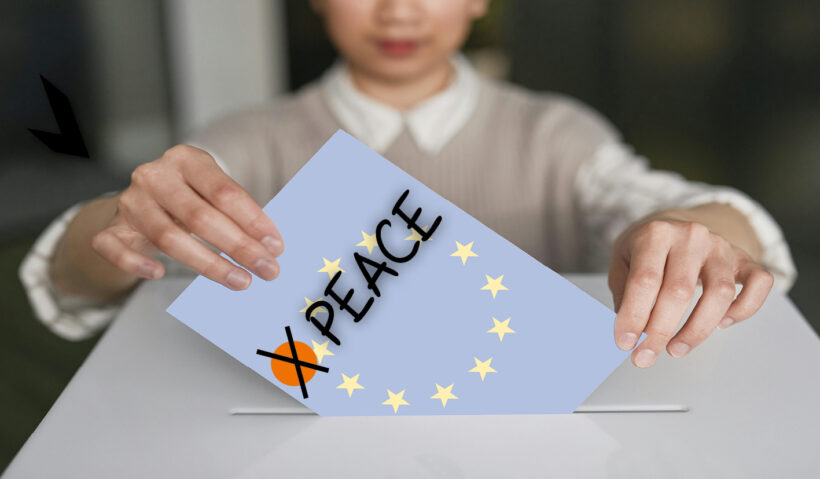What is the basic ingredient of war?
Many might think of weapons, ammunition, or money… but in reality, none of these are fundamental (though they can be useful). What really matters are people. To start a war, you first need people willing to fight it. Guns need someone to wield them, fighter-bombers need a pilot, and triggers need a finger to pull.
That’s right, wars don’t just happen.
So, when someone decides to start a war, one of the main obstacles is to convince citizens to support and actively fight it. This is undoubtedly one of the most difficult challenges because the interests of those who promote wars do not coincide with those of the people who have to fight them.
Wars are fought in the most inhumane conditions: poverty, cold, indescribable suffering… but they are always organized in elegant buildings with a temperature generally between 20 and 23 degrees Celsius and excellent catering. And, of course, the cynical people who promoted these wars know that they will never have to suffer the cold, the hunger, or the horrors of war, but that it will be others who will suffer. A baker, a street sweeper, a dentist, a teacher, whatever their nationality, can easily understand that war will bring death and suffering to them and their loved ones.
But if all this is clear, how do the promoters of war manage to convince populations to fight each other? This is where war propaganda comes in. The most effective strategy is to instill fear in people and demonize the enemy, emphasizing their dangerousness and evil. “We are not the ones who want war, but we are obliged to prepare and fight it. “The enemy deliberately provokes unspeakable atrocities”.
When fear alone does not produce the desired compliance, other incentives are used, such as justice, freedom, the survival of democracy itself, national pride, etc. “We are not defending our interests; we are defending democracy.
The promoters of war are adept at presenting the reasons for conflict in such a way as to sway public opinion. And after a very intense campaign of persuasion, people decide that the time has come to sacrifice themselves. When those who are called to fight are convinced that they have the same interests as those who send them to war, the objective is achieved.
This is exactly what we have witnessed in the last two years: the propaganda of war has been unleashed and the truth has been its main victim.
In Europe we thought that the days when we could talk openly about war were long gone… but we were wrong. After the Second World War, our armies and arms factories exported war to other parts of the world. But now – for some reason – it seems that the strategy of those in power has changed and that the time has come for European citizens to make their own contribution in blood and suffering.
All the taboos that in the past have protected us from the idea of armed conflict on our continent are fading fast, and there is a real danger that these European elections could be the last before the escalation of a conflict that has been quietly prepared for years. Every reasonable proposal to end the conflict is ignored, while non-violent parties are systematically harassed, hidden, and ridiculed by the media.
It is therefore vital that, in the forthcoming elections, European citizens free themselves from the hypnosis of propaganda that presents this war as inevitable and just and anyone who opposes it as a traitor. It is essential to elect representatives who are openly opposed to the war, who are in favor of non-violent conflict resolution, and who will immediately begin to put an end to this strategy of international terror.
What is the point of voting for a party that proposes incentives for agriculture or the environment if that same party is going to drag us into the abyss of a third world war?
We vote and encourage others to vote for peace and against war. We will only vote for those who oppose armed conflict, and we will support all political formations such as “Peace Land Dignity”, “Sovereign People’s Democracy” and “Free Together” in Italy that are collecting signatures to stand for election and that includes negotiation as a solution to the conflict in their programs.
Once the avalanche of violence and war has started, it will be impossible to stop it. Today, there may still be time.
Europe for Peace






